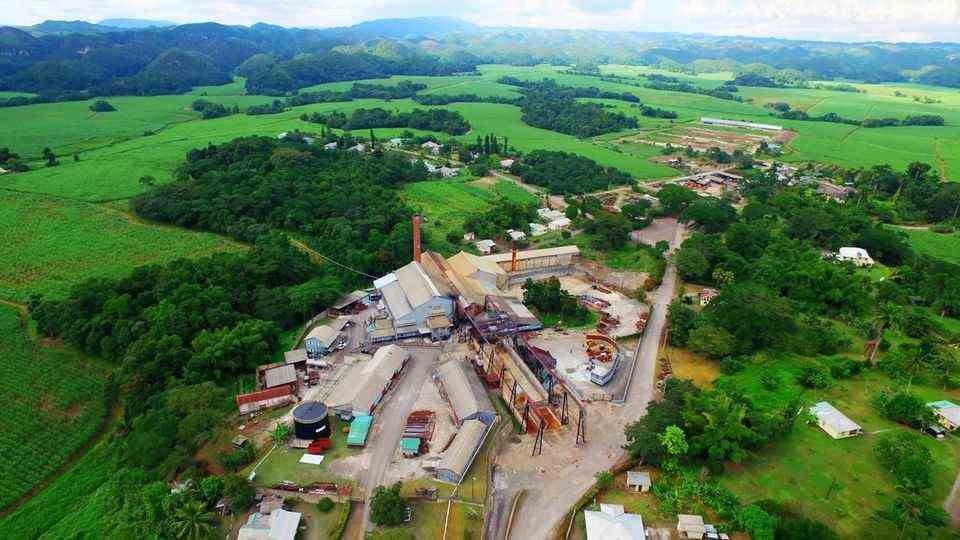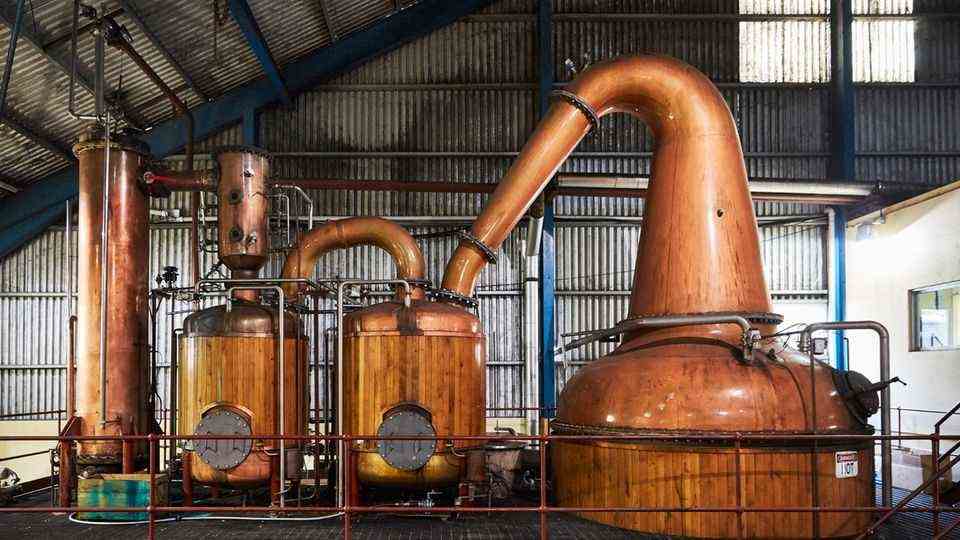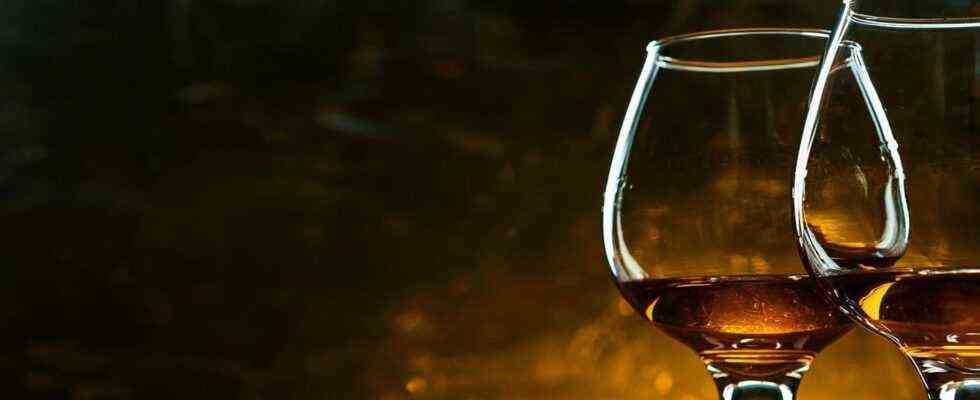Spicy and heavy
Rum from Cuba is good, but the one from Jamaica is better
Rum is best enjoyed pure
© Getty Images
Rum from Cuba is good, no question about it. But if you really want to taste a lot of flavors, you should turn your gaze to Jamaica: Here they take a lot of time for production and rely on small, individual helpers. And there is no trickery here either.
For many people, rum from the Caribbean is synonymous with rum from Cuba. No wonder: Ernest Hemingway once drank his now legendary Daiquiris at the bar in Havana, and Havana Club is one of the world’s most famous rum brands.
But if you really want to deal with rum, you should also take a look at the other Caribbean islands. The Caribbean state of Haiti is known for its wild, fruity Agricole rums. Above all, bottlings from Jamaica are valued.
Because while Cuba produces particularly soft, well-balanced rum, Jamaican rum has its own unmistakable aroma. It is heavy and spicy in taste, which is why it is ideal for mixing long drinks and cocktails.
All from a single source
Sugar cane, the basic product for the production of rum, has been grown in Jamaica for centuries. As the third largest of the Caribbean islands, Jamaica has enough space for plantations with almost 11,000 square kilometers.

The Worthy Park Estate with the sugar cane plantations from the air
© PR
One of the most famous brands on the island is Worthy Park Estate. The property of the same name in the Lluidas Valley inland, including the associated sugar cane plantations, has been around for more than 350 years, and the distillery has been producing rum since 1720. It is therefore celebrating its 300th birthday this year. Today, Worthy Park Estate extends over 10,000 hectares, and 20 different types of sugar cane are grown on 40 percent of the area. 80 percent is still harvested by hand – which is why the distillery is also the largest employer in the region.
The fact that a distillery has its own sugar factory and plantations is a rarity in the spirits scene. Because most companies now rely on raw materials from other companies or even from other countries. Worthy Park Estate is the only remaining house that uses 100 percent of its own sugar cane and the resulting molasses for large-scale rum production.
An insider tip for rum fans
Rum is currently one of the fastest growing categories of spirits. At the beginning of the sixties, on the other hand, demand was so low that the Worthy Park distillery temporarily stopped production. In 2005, however, the distillery was extensively modernized, and since then the company has been expanding increasingly internationally.
The best known are the products that are sold under the official Worthy Park Estate label. The maturation takes place mainly in former bourbon barrels, as is common in the rum world. This gives them a light vanilla note and a woody touch. The so-called Forsyths bottlings are more exciting: They are the epitome of “funky” rum, as the Jamaican varieties are often described in general terms. Here aromas of overripe fruit meet butter, while the nose smells glue, spices and berries.
The products with the “Rum Bar” label are a great value for money: The white one Overproof rum (63 percent by volume) costs just under 24 euros per bottle and is one of the best basic rums for a daiquiri. Here, fruity notes of banana meet aromas of vanilla and grass. Hemingway would certainly have enjoyed it.
The secret of the esters
There are other well-known rum manufacturers in Jamaica, among the best known are those Hampden Distillery and Appleton. What makes Jamaican rum so special is the pronounced ester note.
To put it simply, esters are chemical compounds made from an alcohol and an acid that are contained in aromas and fragrances. With this connection, water is split off, which can then evaporate. This process happens particularly quickly in the Caribbean heat, while Jamaica is warm all year round with daytime temperatures between 25 and 30 degrees Celsius.

Worthy Park’s distillery
© PR
The high ester proportions are mainly created by adding different yeasts. While many mass producers rely on industrial standard yeasts, high-quality Jamaican producers use individual yeasts that also have significantly more time to ferment. In this case, the time and individuality of the yeasts are the key to more aromas.
A question of transparency
But it’s not just the idiosyncratic style that makes Jamaican rum so popular with fans of dark spirits, but also its credibility. Along with Barbados and Martinique, Jamaica is one of the last regions to sell rum completely without added sugar.
“Transparency and an authentic product are very important to me. That is why I can recommend almost unreservedly all types of rum from countries like Jamaica or Barbados,” says the spirits expert Nicolas Kröger in an interview with him star. “Here basically honest rums are produced. From Barbados there are more dry, spicy and yet soft styles. Jamaica rums, on the other hand, are very intense, paired with aromas of dried dark fruits. These are, however, much more complex and are aimed more at advanced users.”
Mai Tai: Predestined for Jamaica rum
A heavy, spicy Jamaican rum comes into its own in Mai Tai. The name of this cocktail comes from the Tahitian exclamation “mai tai roa ae”, which means something like “out of this world”. According to legend, inventor Vic Bergeron said this to his guests when he first served the drink in 1944. Over time, however, the recipe has changed, now it is drunk with a touch more almond (through the Orgeat) and more sour. As a result, the heavy rum no longer dominates the drink, but is better integrated without losing its strength. The recipe is:
- 30 ml of aged Jamaican rum
- 30 ml Martinique rum
- 15 ml curacao
- 10 ml Orgeat
- 1 bar spoon of sugar syrup
- 25ml lime juice
Shake with plenty of crushed ice, pour into the glass and garnish with a sprig of mint and lime.
Not to be neglected in Mai Tai is the choice of the orgeat. It is an almond-flavored syrup that is often refined with orange blossom water or rose water. Bio-Orgeat from Maison Meneau is recommended for just under ten euros per bottle.
Also read:
– Interview with Nicolas Kröger: “With many types of rum, the aroma is simply thrown in”
– Stephan Hinz: These cocktails are almost art
– Interview with Klaus St. Rainer: “At some point the guest said he probably killed his wife”
– Vermouth boom: Why the former “bum luck” is suddenly cool
This article contains so-called affiliate links. Further information are available here.


